One of the many benefits of attending conferences is having the ability to learn more about the changes and challenges our customers face. A hot topic in recent discussions surrounded the changes coming to Centers for Medicare & Medicaid Services (CMS) guidelines and how to provide quality care in a smaller timeframe.
In 2020, CMS announced that it is finalizing a policy change to the list of available “in-hospital” procedures. This change will provide Medicare patients and their surgeons greater choices to obtain care at lower costs by utilizing an outpatient setting for surgical procedures. CMS will begin to eliminate the Inpatient Only option over the next three years. This list is currently comprised of approximately 1700 procedures that are only reimbursed when performed in the hospital inpatient setting. As the transition period begins with some 300 musculoskeletal related procedures being among the first, CMS plans to completely phase out the Inpatient Only List by end of year 2024. And with 2022 coming to a close, time is going by fast!
This shift will encourage that ASCs provide Extended Hours (from typical business hours to 23:59) for patients. It is important to understand that the start of the clock is at the time of admission. Most states allow for an overnight recovery period, but the maximum patient stay is not to exceed 24 hours following admission. So, if your patient was admitted at 07:00am for their procedure they will need to be discharged by 06:59am of the following day. The challenge becomes preparing to provide adequate patient care post-op with a small timeframe in a surgery center.
Understandably, this change raised immediate questions.
Resource challenges:
- Staffing: Currently, most ASC staff on a Monday through Friday model, with varying hours of 6a-5p.
- Staffing models will now need to provide 24-hour staffing resources, as well as potential for weekend hours.
- Staff to ensure that quality of care is provided throughout the entire patient stay. What is current communication and information sharing like?
- In addition to RN staff, ASCs will need to include Anesthesia and Surgical services.
- Provisional Services: Is your ASC appropriately equipped to house 24-hour patients?
- Will the patients have their own rooms with access to showers?
- Food preparation considerations, as well as nutrition and dietary consults. Will these be available?
- Blood products availability. Are there adequate lab services readily available in the off-hours if a patient condition warranted a need for treatment?
- Pharmacy services will now need extended hours. Most ASC do not currently run a full complement pharmacy. Will patients and care providers have access to medications if needed?
- Contingencies for change in Patient Condition: How will the ASC handle a change in a condition that warrants the patient be transferred to an inpatient setting?
- Who will be responsible for obtaining transportation?
- Where will the patient be transferred? To the nearest inpatient setting?
- Overlap and challenges:
- If your facility is regulated by your state not to exceed four hours of operating room and supervised recovery time, how will you handle the extended patient stay? And, how will you establish discharge criteria from the PACU?
- How can healthcare providers, further ensure that patient’s and family’s needs have been met once they leave the facility?
While none of these are easily answered and would be resolved within each ASC over time, some existing technology solutions can help. A few potential solutions to consider as part of your conversation:
Seek out partners that offer:
- A electronic contiguous patient record that encompasses admission through discharge.
- With the onset of extended care, patient hand-off and Nurse-to-Nurse communication is vital to help ensure patient safety, as well as quality of care.
- Block Scheduling:
- Utilization of Block scheduling, either Surgeon Specific or Procedure Specific, can assist in assuring that all necessary resources are available for the patient day of surgery, as well as the continuum of patient care.
- Scheduling and staff efficiency can be improved by accurately scheduling cases for the appropriate amount of time. This helps to prevent staff from staying late or potential overtime.
- Tele-health options:
- With a shorter turnaround time and aged patient population, Tele-health is a viable solution to provide on-going support for patients.
- By offering a Tele-health solution, appointments can be scheduled and conducted from the patient’s home.
- Tele-health options provide 24-hour access to a nurse or physician upon discharge.
ABOUT THE AUTHOR:
Pamela White, Process Consultant, Professional Services

Pamela is a Registered Nurse with over 40 years of experience in healthcare. She has held various Certified Instructor Certificates: Neonatal Resuscitation (NRP), Pediatric Advanced Life Support (PALS), S.T.A.B.L.E, and Certified Childbirth Instructor. Pamela has cared for patients at the Bedside, held various positions as Manager and Director of Perinatal Units, as well as consulted in building, staffing, and running a New OB unit.
As a Process Consultant with Picis, Pamela helps our customers with the education and implementation of Picis solutions. The combination of her experience as a clinician and her role in software, helps drive her commitment to helping improve patient care throughout the perioperative journey.






